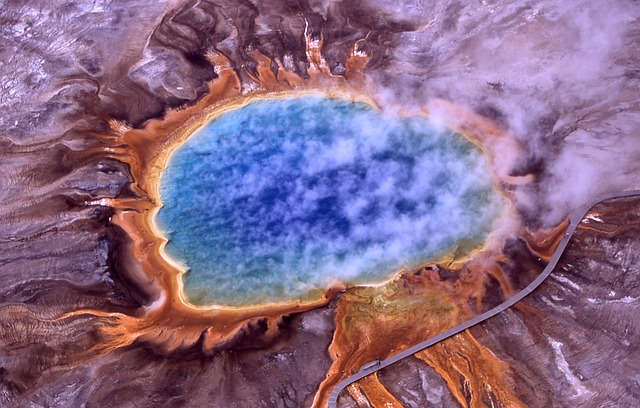Geothermal energy is “Heat of the earth” and may be defined as naturally occurring thermal energy found within rock formations and fluids held within those formations. In the molten core of the earth, the temperature is as high as 4000 degree Celsius. Sources of this heat energy are magnetic or radioactive decay processes occur within the interior of the earth. It can be classified as a renewable source of energy as Earth interior is and will continue in the process of cooling for the indefinite future Geothermal energy.
Geothermal sources: Four general categories of geothermal resources have been identified :
1.) Hydrothermal Convective Systems: These are again subclassified as :
a.) Vapour-dominate or dry steam fields
b.) Liquid-dominated system or wet steam fields and
c.) Hot-water fields.
2.) Geo pressure Resources :
These resources occur in large, deep sedimentary basins. The reservoirs contain moderately high-temperature water under very high pressure. They are of special interest because substantial amounts of methane CH4( natural gas ) are dissolved in the pressurized water ( or brine ) and are released when the pressure is reduced.
3.) Hot Dry Rocks :
These are very hot solid occurring at moderate depth but to which water does not have access, either because of the absence of groundwater or the low permeability of the rock( or both ).In order to utilize this source, means must be found for breaking up an impermeable rock at depth, introducing cold water, and recovering the resulting hot water( or steam ) for use at the surface. This energy is called petrothermal energy.
4.) Magma Resources :
These consist of partially or completely molten rocks, with temperature in excess of 650 degree Celsius which may be encountered at moderate depth, especially in recently active volcanic regions. These resources have a large geothermal energy content.
Uses :
Geothermal energy is taken out from hot water, natural steam or dry rocks may be used for electric power generation, space heating ground water heat pumps recreational sites, agricultural and industrial drying.
Advantages of Geothermal Energy :
1. Geothermal energy is the most versatile and least polluting renewable energy resource.
2. The power generation level is higher for geothermal than for solar and wind.
3. It can be used effectively and efficiently for direct uses such as space and district heating, geothermal pumps, hot water bath resorts, aquaculture, greenhouse, industrial process and enhance oil recovery.
4. It delivers a greater amount of net energy than the other conventional and non-conventional systems.
5. Within the electric supply system, geothermal sources could provide steady baseload power with very low variable costs.
6. Geothermal energy is relatively inexpensive.
Disadvantages of Geothermal Energy :
1. Overall efficiency for power production is low, about 15 % compared to 35-40% for fossil fuel plants.
2. With the draw of large amounts of heat or water from a hydrothermal reservoir may result in surface subsidence.
3. Drilling operation is noisy.
4. Large areas are needed for the exploitation of geothermal energy as much of it is diffused.
5. The steam and hot water gushing out of the earth may contain H2S, CO2, NH3 and radon gas etc.if these gases are vented into the air, air pollution will be a real hazard. These gases are to be removed by chemical action before they are discharged.
Also, Read -Merits and Limitations of Wind Energy
Thanks for reading this article. Please, don’t forget to share it.
